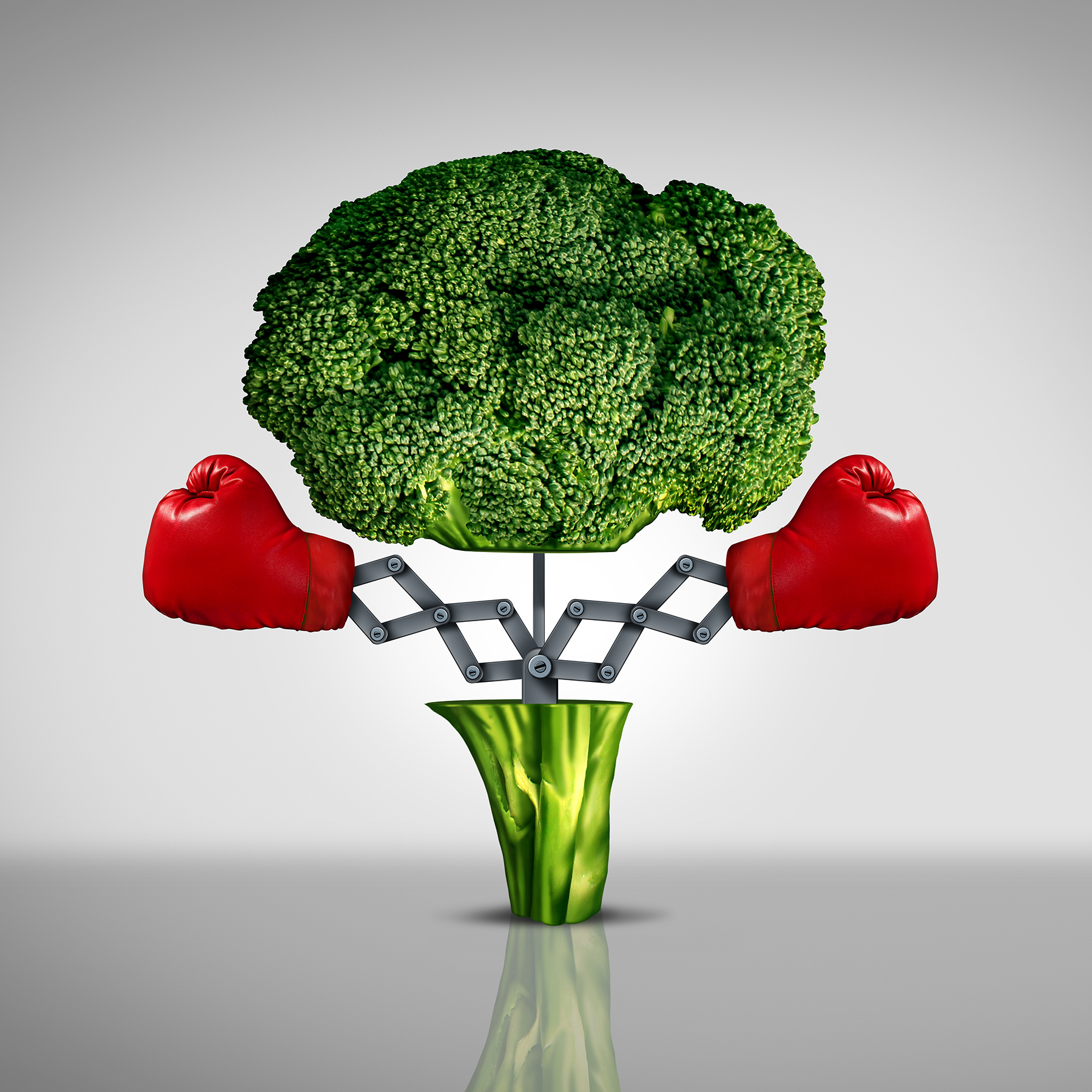Nutrition Tips for Cancer Survivors

Big surprise: Good food helps prevent cancer, too
We are definitely what we eat – and drink. Nutrition is an important partner in cancer prevention, treatment and recovery. And a partnership can’t exist without our wholehearted support. We want to be confident that changing our lifestyle is worth it.
According to the American Cancer Society, there is strong scientific evidence that our lifetime cancer risk can be lowered by:
- Eating a healthy diet built around plant foods
- Limiting alcohol consumption
- Achieving and maintaining a healthy weight
- Being physically active
This lets us follow a game plan we can live and thrive with.
So here’s the plan:
- Stuff in the fruits and veggies: Eat at least 2 ½ cups of vegetables and fruits each day. The more the better. French fries do not count as a vegetable.
- Get colorful: The colors in fruits and vegetables come from phytochemicals, substances that can help protect you from cancer and other diseases. The deeper the color, the greater the concentration of nutrients and antioxidants. And your meals will be prettier.
- Fiber is your friend: Eat three or more servings per day of high-fiber whole grain foods. Eating a variety of foods containing high fiber protects against several types of cancer.
- Keep the calcium; lose the fat: As you decrease the fat in dairy products, you cut calories, saturated fat, and cholesterol, while keeping the protein, calcium, and most other vitamins and minerals.
- Limit processed meats: Bacon, sausage, lunch-meats, and hot dogs can be loaded with additives such as nitrates and nitrites that don’t contribute to health.
- Get creative with protein: Poultry, fish, or beans are a great alternative to red meat (beef, pork, veal, and lamb). When you do eat red meats, they should be lean and in small portions. That 16-oz marbled T-bone steak does a number on your arteries and cancer fighting cells.
- Skip frying: Use low-fat cooking methods, like broiling, baking, or steaming.
- Cut back on alcohol: While small amounts of alcohol may have some health benefits, large amounts do not. Limit yourself to no more than one drink per day for women and two drinks per day for men, one glass of wine, a beer or 1 ½ ounces of liquor.
- Think balance: Calories in must be balanced by calories out to maintain weight. An imbalance of calories is great as long as you are burning more than taking in. It takes a team approach to diet and activity to get to a healthy weight and maintain it throughout life.
Vanessa Serrano, an oncology clinical dietitian at Sylvester Comprehensive Cancer Center, explains: “We commonly are asked what is the right supplement or the right diet for recovery after treatment and the answer is a variety of food. No matter the age or the gender, the answer is not one food or one pill, but a variety of foods that include colorful fruits and vegetables. The information discussed here has had a tremendous success with our patients. It provides a protective effect we all attempt to maintain whether it is before, after or during treatment.”
To learn more about healthy choices to prevent cancer, visit these websites:
- Academy of Nutrition and Dietetics – www.eatright.org
- MyPlate – www.ChooseMyPlate.gov
If you are a patient at Sylvester and are interested in making an appointment with a registered dietitian, please contact The Courtelis Center at 305-243-4129. If not, you can find registered dietitian services in your area at: www.eatright.org.
Tags: Cancer survivors, diet, exercise, good food, healthy choices, Nutrition
